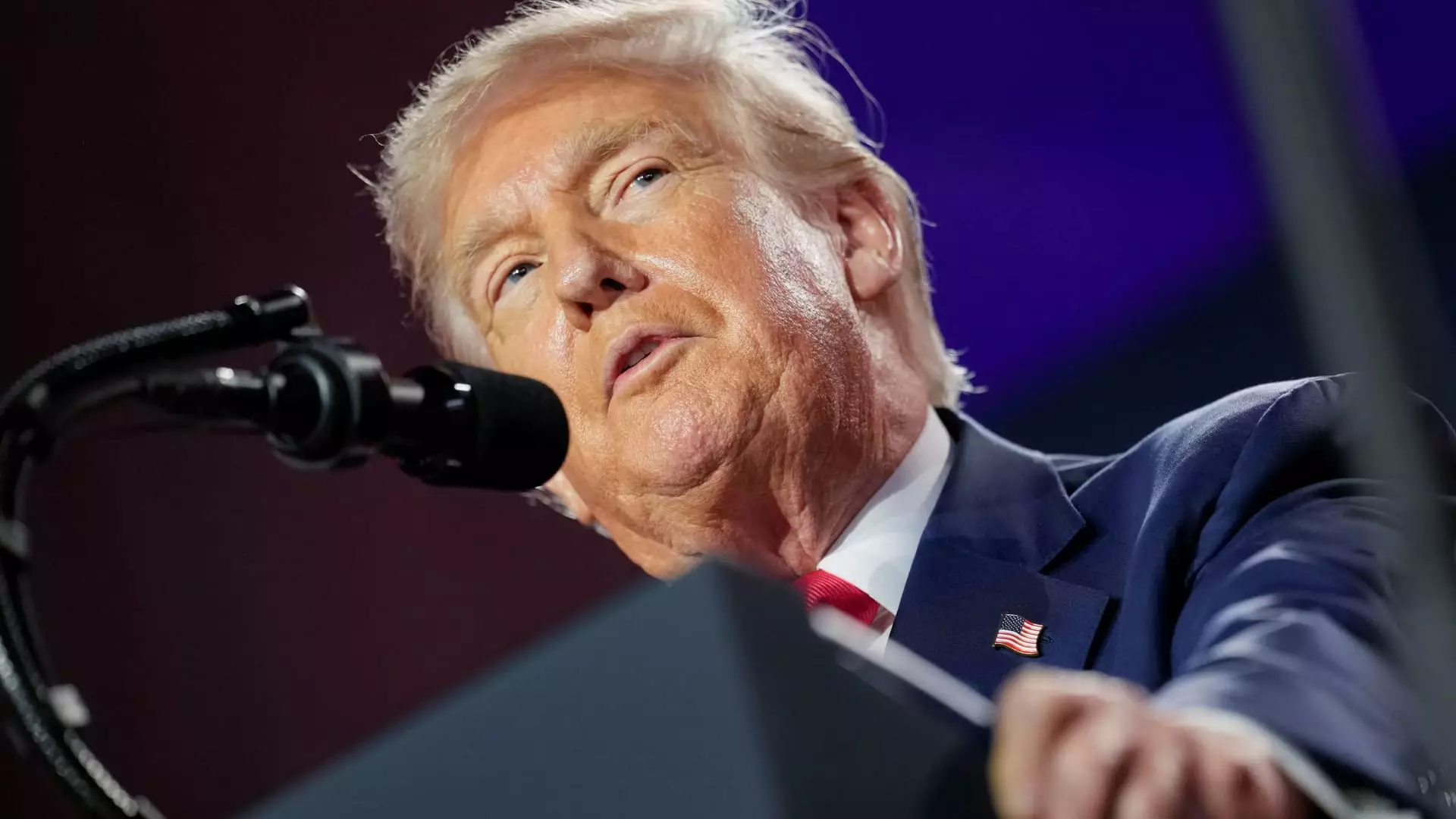In recent times, the delicate balance that preserves the independence of the Federal Reserve has been under increasing assault. When a sitting president courageously—if misguidedly—walks into the Fed headquarters amid accusations of mismanagement, it signals a disturbing shift toward politicizing economic governance. This unprecedented visit by Donald Trump, ostensibly to criticize a billion-dollar renovation project, is not just about infrastructure; it’s a clear political gambit aimed at undermining the very foundations of Federal Reserve autonomy. The notion that a president should be scrutinizing, let alone publicly pressuring, the head of the central bank reveals a troubling erosion of institutional independence necessary for credible monetary policy.
Such interference risks destabilizing not only the economy but also the core principles of a balanced democracy. When the Executive Branch seeks to manipulate or intimidate an institution designed to shield monetary policy from political whims, it opens the door to decisions based on short-term political gains rather than long-term economic stability. Powell’s steady interest rates, despite relentless pressure, underscore the importance of insulated decision-making free from the caprices of partisan politics. Trump’s narrative—accusing Powell of incompetence and bias—underscores a dangerous presumption: that the central bank should serve political interests over economic health.
The Political Theatre Versus Pragmatic Governance
The spectacle of a president personally inspecting Fed facilities, especially while publicly lambasting its leader, exemplifies political brinkmanship rather than responsible oversight. It’s more than a mere policy disagreement; it’s a power play aimed at diminishing the independence of an institution that, historically, has operated successfully with minimal political interference. The fact that Trump chose to highlight a billion-dollar renovation project during a politically charged visit raises questions about the motives behind such transparency. Is this a genuine concern about fiscal mismanagement, or a veiled effort to distract from broader economic issues?
Moreover, Trump’s focus on reducing interest rates—an action which could have stabilizing effects—appears less about sound fiscal policy and more about appealing to populist sentiments. The obsession with short-term debt savings overlooks the importance of maintaining economic stability and credibility in financial markets. Agency heads like Powell serve as custodians of a complex system that cannot—and should not—be manipulated to fit political narratives. Yet, the current administration blurs this line, pushing the central bank into a political arena where independence is increasingly fragile.
Implications for the Future of American Democracy
The broader implications of this episode go beyond monetary policy; they threaten the very integrity of American democratic institutions. The central bank’s independence is no mere technicality—it is a safeguard ensuring that economic decisions are made with expertise, free from political pressure. When presidents attempt to publicly humiliate or threaten the Fed chair, they send a chilling message: that economic stability is subordinate to political expediency.
Furthermore, this attack on the Fed coincides with a narrative that seeks to portray financial oversight as a tool for political leverage, undermining trust in the economy’s governance. Underpinning this behavior is a troubling disregard for the checks and balances that keep U.S. democracy resilient. The goal should be strengthening these institutions—not weakening them through noise and spectacle.
The recent Supreme Court ruling on the Fed’s independence offers some reassurance; however, consistent political attacks like Trump’s threaten to set dangerous precedents. It is imperative that citizens recognize the importance of safeguarding the Fed’s autonomy. An independent central bank is a pillar of economic stability, and its politicization risks plunging the country into unpredictable cycles of volatility driven by partisan interests.
Until political leaders accept that sound economic policy depends on independence and expertise, the nation will continue to gamble with its financial future.

